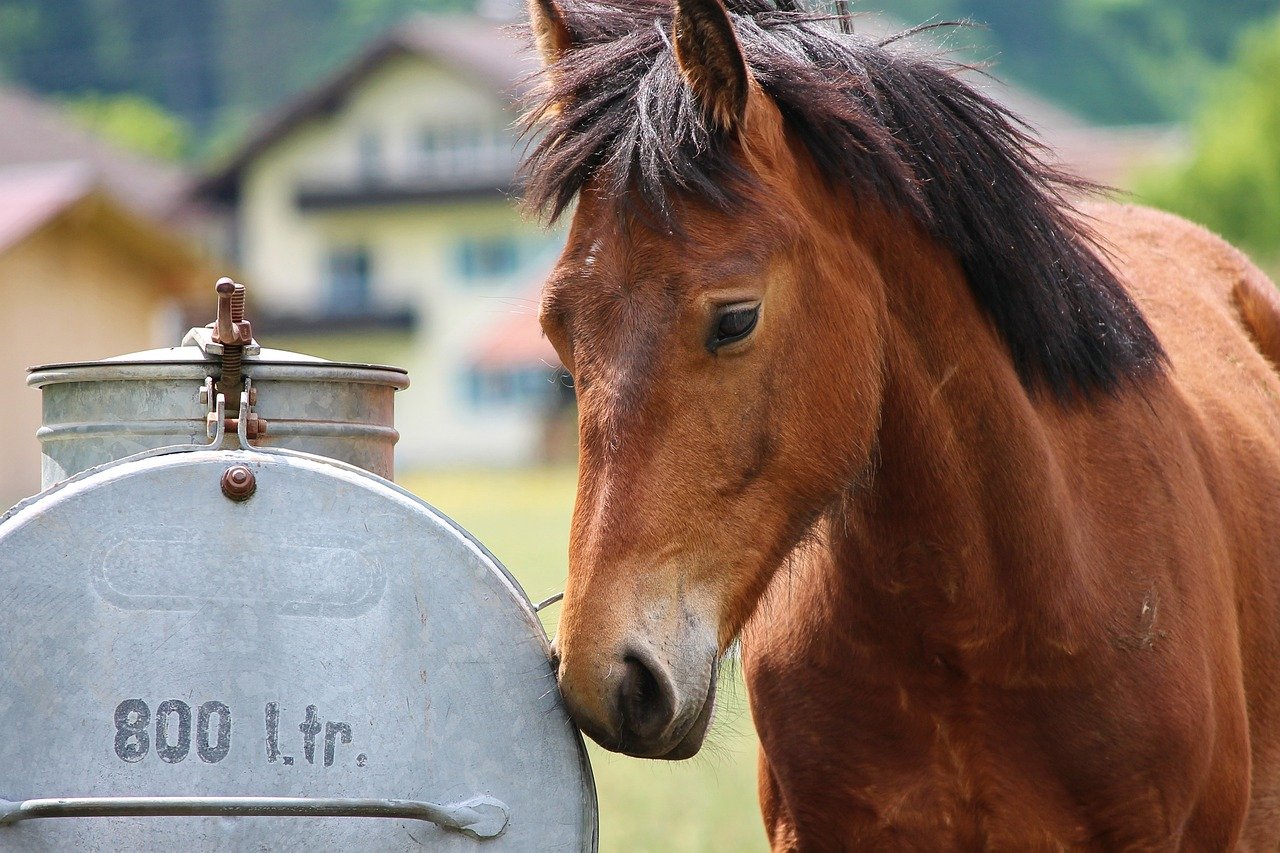Equine Hydration Mastery: Ensuring Your Horse's Daily Water Intake
Understanding the paramount importance of proper hydration is foundational to responsible horse ownership. This guide aims to provide comprehensive insights into recognizing signs of dehydration, implementing effective hydration strategies, and addressing challenges that may hinder your horse's water intake. Our goal is to empower you with the knowledge needed to guarantee the health and vitality of your equine companion, ensuring countless enjoyable rides together.
Significance of Horse Hydration
Maintaining adequate hydration is critical for the overall health and well-being of horses. Water plays a pivotal role in various bodily functions, impacting digestion, temperature regulation, electrolyte balance, nutrient absorption, joint health, and energy levels.
Digestive Health:
A constant flow of water is essential for the unique digestive system of horses, preventing conditions like colic.
Temperature Regulation:
Hydration facilitates efficient thermoregulation, preventing heat stress during physical activity or hot weather.
Electrolyte Balance:
Sweating during exercise depletes electrolytes, necessitating water intake to maintain proper nerve and muscle function.
Nutrient Absorption:
Water is crucial for nutrient absorption from the horse's diet, preventing malnutrition and illness.
Joint Health:
Adequate water intake contributes to joint lubrication, reducing the risk of stiffness and lameness.
Energy Levels:
Proper hydration sustains stamina and overall performance, preventing fatigue in horses, especially those in regular training.
Preventing General Dehydration
Monitoring water consumption is crucial to prevent dehydration-related health issues, including kidney problems. Understanding your horse's daily water needs involves considering factors such as size, activity level, diet, and environmental conditions.
How Much Water Does a Horse Drink in a Day?
On average, horses consume 5 to 10 gallons of water daily, with variations based on size, activity, and weather conditions. Hot and humid weather increases water needs, while colder weather may lead to reduced intake without compromising hydration.
How Long Can a Horse Go Without Drinking Water?
Horses should not go more than a few hours without access to water. Consistent access to fresh water is vital for maintaining good health, regardless of factors like activity level, climate, diet, and overall conformation.
Recognizing Signs of Dehydration in Horses
Early detection of dehydration signs is crucial for prompt intervention. Common indicators include sunken eyes, tacky gums, prolonged skin tenting, reduced capillary refill time, decreased appetite, dark urine, lethargy, dry coat, and increased heart rate.
Strategies for Maintaining Horse Hydration
Provide Access to Clean Water:
Ensure constant access to fresh water, regularly cleaning troughs and buckets to prevent contamination.
Monitor Water Intake:
Pay attention to your horse's typical water consumption, as changes may signal health issues.
Adjust Diet Appropriately:
Incorporate moist feeds or soaked hay to increase water intake, especially for horses with dental issues.
Salt & Electrolyte Supplements:
Offer salt blocks to stimulate thirst and consider electrolyte supplements during increased physical activity or hot weather.
Regular Exercise:
Ensure horses have access to water during and after exercise to replenish fluids lost through sweating.
Monitor Environmental Conditions:
Provide shade and access to water during hot weather, while ensuring unfrozen water in colder months.
Routine Veterinary Check-Ups:
Schedule regular check-ups to monitor your horse's health and receive guidance on hydration.
Temperature Management:
Use misting fans or shaded areas during hot weather to prevent heat stress and encourage water intake.
Keeping Your Horse Hydrated on the Road
During long-distance travel, offer water every 2-4 hours, even if it requires stopping at rest areas or gas stations. Encourage drinking at new locations by using methods like floating alfalfa cubes.
What to Do if Your Horse Is Not Drinking Water
Consult a veterinarian if your horse refuses water or shows signs of dehydration. Timely intervention is crucial, and in severe cases, a vet may administer fluids directly into the stomach via a nasogastric tube.
By implementing these practices and staying vigilant, you can ensure optimal hydration levels in your horse, minimizing the risk of dehydration-related health issues. Regular observation, proactive measures, and veterinary consultation when needed are key components of effective hydration management.
For more information about mare management and our stallion services, please contact Oak Branch Horse Farms by clicking here or calling Kate May at 706-536-2533.

